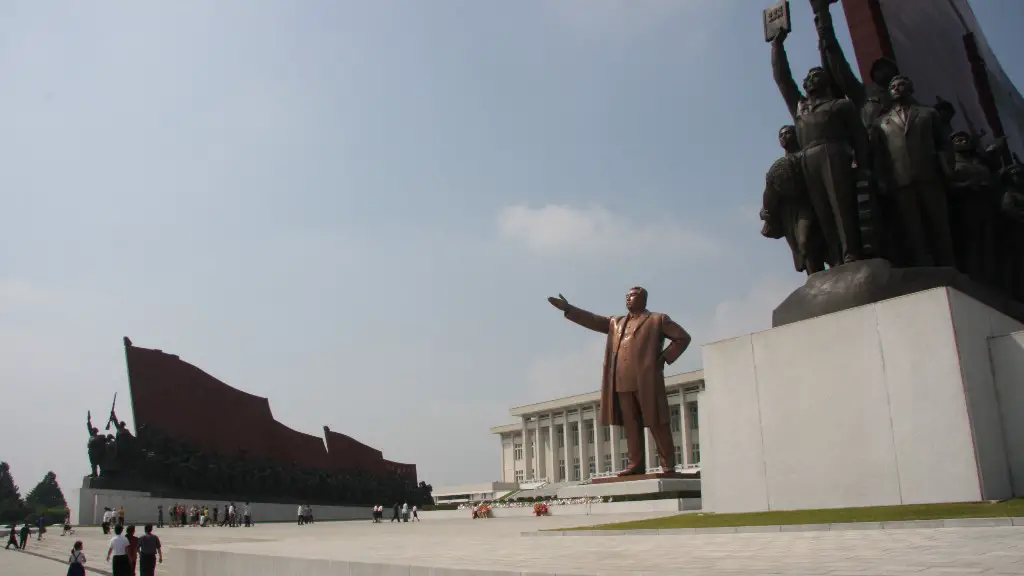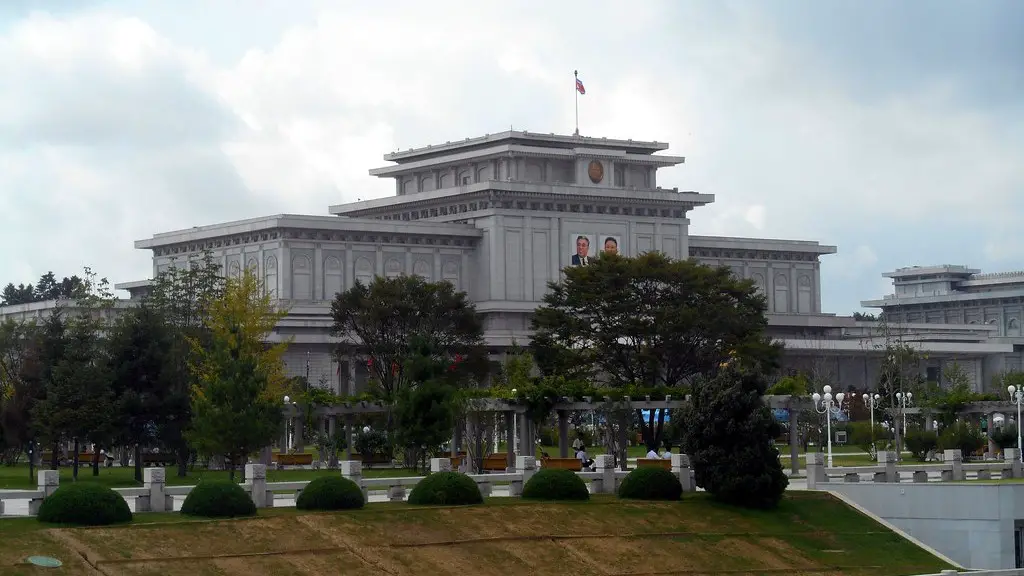Where did North Korea get Uranium
Nuclear weapons and their development remain one of the biggest threats to global security. North Korea’s nuclear arsenal has long been an enigma and a source of concern for the region and the world. Where did North Korea get its uranium to construct a nuclear weapon?
North Korea began to develop nuclear weapons capabilities in the late 1980s and has invested considerable resources in their production. Analysts suggest that North Korea used three primary sources for obtaining uranium for its nuclear weapons program: imported uranium, domestic mining, and nuclear reprocessing.
One source of uranium that North Korea has used to build a nuclear weapon comes from imported uranium. Even though sanctions have been in effect since the early 1990s, North Korea has still been able to obtain uranium from foreign sources. It is well documented that North Korea imported uranium ore and related hardware components from China in 2008 and again in 2011.
Another source of uranium for North Korea’s nuclear weapons program is domestic mining. North Korea is estimated to have five operating uranium mines, located mainly in South Hamgyong province, although the exact locations are not known. North Korea has also experimented with isotopic enrichment technology, suggesting the potential for the country to produce uranium from domestic sources.
Finally, North Korea has also used nuclear reprocessing to obtain uranium for its nuclear weapons. Reprocessing is a process used to extract plutonium from spent nuclear fuel. The plutonium can then be used to construct nuclear weapons. While reprocessing is a more expensive and complicated process, North Korea has claimed to have mastered the technology and it may be one of the primary sources of uranium for the country’s nuclear weapons program.
To some, news that North Korea has multiple sources of uranium is intimidating, yet it is important to remember nuclear proliferation is a global issue and requires a collective solution. Currently, there are few mechanisms in place to discourage North Korea from acquiring weapons-grade uranium. In order to curb the nuclear threat and halt further development, more international cooperation, inspections, and collaborative efforts between the various countries involved will be required.
International Discourse and Regulation
Since the 1990s, the international community has been engaged in diplomatic measures to regulate North Korea’s nuclear ambitions. However, these measures have had limited success, particularly since the North Korean government has demonstrated a willingness to flaunt international regulations. This has created a crisis of confidence among the other countries in the region.
Much of the international community’s efforts have been focused on convincing North Korea to give up its nuclear weapons and adhere to the Nuclear Non-Proliferation Treaty. The United States, China, and South Korea have proposed a number of plans to incent North Korea to dismantle its nuclear weapons, with limited success. In response, North Korea has continued to reject diplomatic overtures, insisting on its right to possess nuclear weapons.
Furthermore, the international community’s lack of a united front when dealing with North Korea increases the risk of failure in any diplomatic efforts. For example, China remains reluctant to commit to firm sanctions against North Korea and has provided economic assistance that has allowed the country to continue developing its weapons program.
In short, the international community has been unable to come to a resolution with regard to the North Korea problem and continues to have limited diplomatic options available. This leaves the possibility of future nuclear proliferation largely unable to be constrained.
Implications of Nuclear Proliferation
The potential for North Korea to gain access to nuclear weapons poses a huge threat to the region and to the world at large. If North Korea is able to develop a nuclear arsenal, it will create an imbalance in the regional power dynamics, with unpredictable consequences.
The ramifications of a North Korean nuclear program would also be felt from an economic perspective. In the event of war or even the potential for war, the global economy is likely to be affected, as investors become more uncertain about the future. Also, countries may be more reluctant to invest in the region if there is the possibility of a nuclear conflict.
Finally, there are also implications for global security, as the possibility of nuclear proliferation increases terrorism risk. It is possible that rogue states or terrorist organizations may seek to acquire nuclear weapons from North Korea or other sources. While the exact security repercussions of North Korea’s nuclear weapons program are difficult to predict, the risk to global safety cannot be underestimated.
Possible Solutions
The current international situation with North Korea presents a number of challenges, but there are also some potential solutions that could help to contain the nuclear proliferation issue.
First, international sanctions are one possible solution. Sanctions are often seen as an effective tool to prevent proliferation, as they can severely limit the country’s ability to trade with the international community. The United Nations Security Council has imposed a series of sanctions on North Korea in an attempt to curtail the development of its nuclear program.
Second, diplomatic negotiations remain one of the key options available to the international community. Negotiations have often been successful in persuading nations to abandon their nuclear ambitions. The Six-Party Talks on the Korean Peninsula are an example of how negotiations can be used to address regional security issues.
Third, the international community can also explore the possibility of providing economic aid to North Korea. Economic aid is seen as one of the most effective tools for inducing change in the country. In recent years, South Korea has promised economic investments and assistance in exchange for North Korea’s commitment to disarm.
Finally, it is also important to remember that the North Korean nuclear weapons program is also in part a result of US policy. In the past, the US has been involved in a number of interventions in the region and has been accused of lacking diplomatic solutions in resolving the issue. In this regard, the US should take a more active role in addressing the issue, rather than relying on sanctions and military solutions alone.
Public Opinion and Debate
The issue of North Korea’s nuclear weapons program remains highly controversial, with a wide range of opinions and perspectives. While many support a diplomatic solution to the problem, others have called for harsher sanctions and military action as a means of addressing the issue.
One of the major debates is whether or not the North Korean government should be allowed to maintain its nuclear weapons program. Those in favor of allowing the program suggest that North Korea should be allowed to keep its weapons as a deterrent. On the other hand, those opposed to the program argue that the country’s nuclear weapons pose a risk to global security and should be eliminated.
Furthermore, there have also been discussions as to whether or not the international community should use economic assistance or military action as a means of addressing the issue. Supporters of economic assistance argue that economic aid is the most effective way to induce North Korea to give up its nuclear weapons program, while those in favor of military action prefer a more hardline approach.
Public opinion on the issue remains divided, with a range of perspectives on how the international community should respond to North Korea’s nuclear weapons program. Ultimately, it is up to the governments of the region and the international community to decide how to address the situation.
Final Thoughts
The North Korean nuclear weapons program is a major global concern which must be addressed in order to ensure peace and security in the region. Although the current stalemate has led to a lack of resolution, there are a number of potential solutions that the international community and the governments in the region could pursue in order to decrease the threat posed by the North Korean nuclear weapons program.
It is also important to recognize that the issue is a complex one that cannot be resolved overnight. In order to ensure that any solution is successful in curbing nuclear proliferation, global leaders and governments will have to come to a consensus as to how best to approach the issue. Only by working together can global peace and security be ensured.





